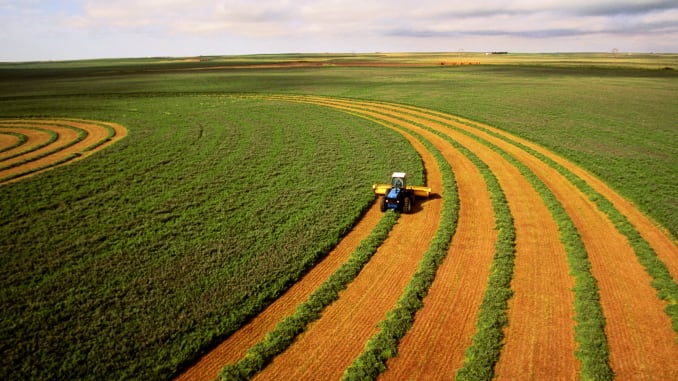Blockchain technology can transform the entire food industry, by increasing efficiency, transparency and economic growth in the agriculture sector.
Let me make it easy for you! Let’s say you walk into a supermarket like Tamimi, Carrefour, or Danube and you are walking around in the vegetable section wondering what’s fresh and what’s not? Or you ask your self are those cage-free eggs really cage-free? With blockchain technology you can get all the answers you need by tracing the source in seconds.
Blockchain technology can empower customers with more data and even tracking food sickness. So, when you check a product in a supermarket, the product will have a bar code on it, you scan the bar code from your cell phone using an app and you can read all the information you need about the product.
People are becoming more health-conscious and they want to know as much as possible about the food they buy. A lot of people are more likely to switch to a brand that provides more in-depth product information than ones with no or little information.
Blockchain technology is simply defined as a distributed ledger that records the origin of a digital asset. The technology enables food to be traced from a farm to a grocery store in just a few seconds. It also reduces cases of illegal harvesting and shipping frauds. This transparency will provide safety solutions, save time, money and lives.
Giants like Walmart, Carrefour and Starbucks are using the technology and Walmart’s food safety solution was built using IBM Blockchain technology.
The technology can really help the agriculture sector in Saudi Arabia, imagine you can track a product’s journey from seed to store shelf. Blockchain can help supply chain managers by making it clearer where a product was transported to and by whom. The technology can even help farmers and retailers prove that products claiming to be organic or free-range actually are.
From a legal perspective, Blockchain Technology in Saudi Arabia is still fairly new and the regulatory framework around it is still developing. There are many legal issues to consider such as data protection, intellectual property, competition, smart contracts and disputes.


